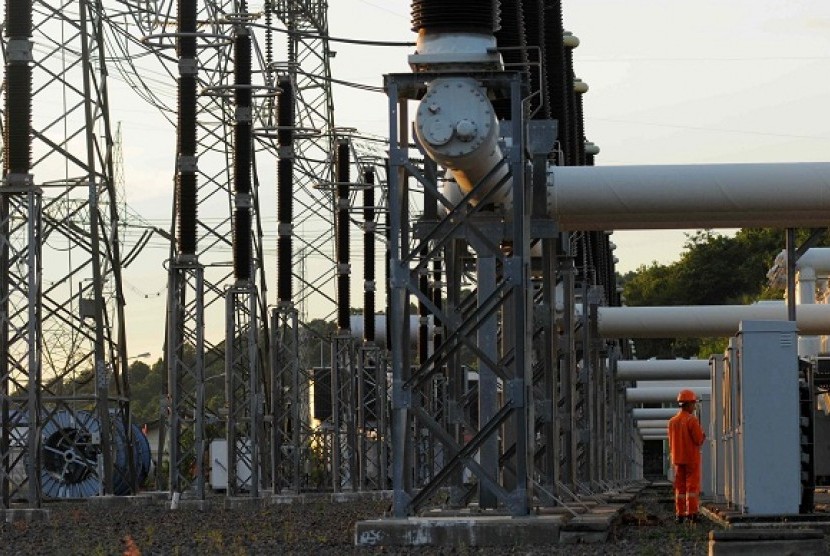REPUBLIKA.CO.ID, JAKARTA -- Indonesia needs well-placed and high quality infrastructures as a key ingredient to properly operate many of its key sectors.
Recognizing this, publicly listed PT Nusantara Infrastructure will sponsor the Infrastructure Leaders Forum (ILF) here on Thursday, October 31, 2013.
"The forum is expected to overcome gaps in infrastructure and speed up development in Indonesia," ILF chairman and the director of PT Nusantara Infrastructure, John Scott Younger, said in Jakarta on Monday.
According to John, the aim of the Infrastructure Leaders Forum is to provide common ground for government and members of the private sector to address issues relating to infrastructure development across the country.
He noted that the forum will also promote goodwill and relations between all stakeholders, and seek to generate ideas and agendas to accelerate the rate of growth.
"The forum also aims to yield innovative ideas and will officially state its intention to increase the pace of infrastructure development in Indonesia," Younger said.
He added that the ILF 2013 will bring together some 350 participants representing various infrastructure-related sectors, including Pricewaterhouse Coopers (PwC), Rajawali Corpora, the Australian Government Trade Commission, Australia Limited, PT Bank Central Asia, Thiess, BTPN, ICBC Bank, and several national mass media outlets.
In the acceleration of infrastructure development in Indonesia, Younger said a key issue faced by all stakeholders involves the financing and investment of much-needed projects.
Meanwhile, the Head of the Construction Board at the Public Works Ministry, Hediyanto W Husaini, said in a press statement last Thursday that the construction sector contributes 10.45 percent to the nation's gross domestic product.
Therefore, he pointed out that the government was giving a priority to budget allocations for infrastructure development in various parts of the country.
"The national construction market has continued to increase every year, along with rapid infrastructure development and robust national economic growth," he said when opening the "Concrete Show South East Asia 2013" in Jakarta.
During the Asia Pacific Economic Cooperation (APEC) meeting in Nusa Dua, Bali early this month, Indonesia urged member countries of the APEC group to work towards setting up a framework for development and investment cooperation in the field of infrastructure.
At that time, US Secretary of State John Kerry told President Susilo Bambang Yudhoyono that the United States was looking forward to enhancing cooperation with Indonesia in infrastructure development.
President Yudhoyono's special aide for international affairs, Teuku Faizasyah, said at the time that during the 20-minute meeting, the United States saw the potential of the two countries with regard to cooperation in developing infrastructure.
"Many US businesspeople are interested in developing infrastructure in Indonesia under a partnership scheme," Faizasyah said, adding that the cooperation in infrastructure development would lead to the creation of more jobs for the people of the two countries.
Further, infrastructure development was one of the topics discussed at the APEC meeting to accelerate connectivity among APEC members.
APEC leaders agreed at the end of the summit to cooperate in developing, maintaining and renewing physical infrastructure through a multi-year Plan on Infrastructure Development and Investment.
The Plan will assist APEC economies in improving the investment climate, promoting public-private partnerships, and enhancing government capacity and coordination in preparing, planning, prioritising, structuring and executing infrastructure projects.
At the APEC finance ministerial meeting in Bali late in September this year, World Bank Managing Director Sri Mulyani suggested that Indonesia focus on infrastructure development to meet its public needs.
"Indonesia needs investment for infrastructure to meet public needs for its activities," she said, adding that a lack of infrastructure support was an obstacle in the way of Indonesia boosting its economic growth, curbing inflation and reducing its current account deficit.
Mulyani further said that all countries in the world were confronted with the same problems, whether they were poor, developing or advanced.
Developing countries, she stated, needed US$1 trillion to US$ 2 trillion to support growth, increase productivity, alleviate poverty and improve people's welfare.
In view of that, the Global Infrastructure Facility would bridge the long-term financing needs through fund availability for infrastructure development.
Regarding infrastructure, President Yudhoyono on October 16 inaugurated eight infrastructure projects, including a 2x315 megawatt coal-fired power plant in Pacitan, East Java.
"I am glad with what we have built. There was little infrastructure here before, but it has come up quickly now," President Yudhoyono said at the inauguration ceremony.
Pacitan has progressed at a fast pace in economic and infrastructural terms, compared to the past, he noted.
"What I inaugurated today is part of Indonesia's progress. Development must be spread evenly," the president said.
Among the eight infrastructure projects launched by the president include coal-fired power plants in Paiton Unit 9 of PLTU 2 East Java with a capacity of 1x660 MW; PLTU 1 in Rembang, Central Java, with a capacity of 2x315 MW; and Unit 2 and 3 of PLTU 3, Lontar, Banten, with a capacity of 2x315MW.
"What has been achieved by Pacitan and Indonesia must be continued," he said.
PLTU 1 East Java, built on 65 hectares of land, is located in the village of Sukorejo, Sidomoro sub-district, about 30 kilometers east of Pacitan, off the Indian Ocean.
The project has two units of generators with individual capacities of 315 MW and a total capacity of 630MW. (Otniel Tamindael)


